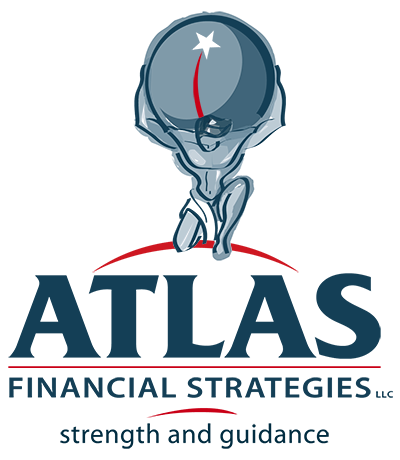- Our Process
- Video Learning Library
- Third Party Resources
- In the News
- Contact
- Investment Team
- Informational Guides
- Client Forms
- Our Firm
- I Just Sold My Business—Now What?
- How to Delay Withdrawals on Your Retirement Accounts
- Blog
- Investment Management
- Preparing Your Business for Sale: Navigating Due Diligence
- The Nautilus Group®
- Special Needs Planning
- Navigating Income Tax
- Life plan for your business®
- What You're Failing to Consider About Your Future Part I: Business Owners
- What You're Failing to Consider About Your Future Part II: Retirees
- What You're Failing to Consider About Your Future Part III: Young Professionals
- How Much Life Insurance Do I need?
- What You Should Know About Your Emergency Fund
- How Pre- and Post-Tax Contributions Affect Your Retirement
- Should You Do a Roth Conversion?
- Managing Debt: The Snowball vs. The Avalanche
- Your Extra Cash: Is It Better to Pay Off Debts or Invest More Money?
- Student Loans: What's the Best Way to Pay Them Off?
- Maximizing Your Money: Find the Most Efficient Use of Your Dollar
- Planning Post-Pandemic: Survival Tips for Business Owners
- Preparing Your Business for Sale: Are You Ready?
- Preparing Your Business for Sale: Pre-Sale Task List
- Preparing Your Business for Sale: Questions to Ask Potential Buyers
- Preparing Your Business for Sale: What to do When Things Get Serious
- When a Retirement and Legacy Arrangement (RALA) Makes Sense for You
- Know Your Numbers: The Importance of Creating Cash Management Systems Before Growth
- Tax Strategies for Business Owners
- Your Growing Business: Hiring the Right People
- Creating an Emergency Succession Plan to Protect Your Business
- Estate Planning: Equal Isn't Always Fair
- What’s the Greatest Gift You Can Leave Your Family? A Plan for Future Financial Success
Maximizing Your Money: Find the Most Efficient Use of Your DollarWhen it comes to financial planning, most people focus on how to get the best return on their investment—monitoring the stock market and aiming for the largest profit. That’s certainly an important part of growing your money, but it’s also a factor that’s largely out of your control. What is in your control, on the other hand, is how you manage the money you have. When you look at your income, expenses, savings, investments, debts, and so on—how can you best use each dollar to help you achieve your goals? If you view your finances this way, you’ll gain far more money in the long run than you would by simply aiming for the highest return on an investment. 4 Key Ways to Make the Most Efficient Use of Your DollarThere are four key scenarios where you can determine how to make the best use of your money—and the best part? These decisions are all within your control. Prioritize High-Interest Debts Recently, we worked with a young couple who wanted help managing their budget. When they met with us, the husband was getting his PHD and wasn’t working, and the wife was employed and had an unmatched 401(k). Each month, they were contributing $400 to her 401(k), $300 to their personal savings, and $1,000 toward their credit card debt (which had an interest rate around 25 percent). Had they continued that plan, they would have paid off their credit card debt in about three and a half years. When we reviewed their plan, we helped them see that it made more sense to postpone 401(k) contributions so they could pay off the credit card sooner and get rid of their high-interest debt. After all, they could never be guaranteed a 25 percent return on her 401(k)—but they could guarantee themselves a 25 percent savings by eliminating that debt. (Now, if her 401(k) had been a matching plan, that’d be a different story—in that case, it would make sense to contribute the minimum matching amount—otherwise, they’d be passing up free money from her employer.) We also recommended they divert the $300 they were putting in savings to their credit card debt. Because even though they hadn’t quite reached their savings goal, they had enough to justify diverting the extra cash toward the credit card debt—and in doing so, they could pay off the debt in one and a half years instead of three and a half—saving them around $5,500 in the long run. Was the couple’s original plan bad? Not necessarily—it was founded in several “good” financial decisions like paying off debt, contributing to their retirement plan, and saving—but they weren’t the best decisions based on their situation. They weren’t leveraging the most efficient use of their dollar. So if you have more than one debt (and most people do), consider how the interest rates affect your short- and long-term goals and prioritize them accordingly. Weigh the Benefits of Paying Off Debts vs. Investing That said, paying off debts isn’t always the most efficient use of your dollar—ultimately, it depends on a debt’s interest rate, your investment opportunities, and your long-term goals. Consider your mortgage—if you can make extra payments, you’ll probably save about three percent in interest. But if you take the same amount of money each month and invest it, you’re likely to earn more over time—so long as the return on your investments is more than your mortgage’s interest rate (which, as of now, is likely relatively low). To learn more about the pros and cons of investing versus paying off debts, check out our blog, Your Extra Cash. It makes sense that most people want to pay off their debts as soon as possible—especially when the outcome is something as monumental as paying off your house—but it’s not always the most financially rewarding way to spend your money. Minimize Tax Liabilities Lots of people contribute to their retirement funds without fully understanding the long-term tax implications, whether good or bad. Here’s a question you should ask yourself: Does it make more sense to save pre-tax dollars I’ll be taxed on during retirement, or contribute post-tax dollars that will provide tax-free income when I retire? For a lot of people, it’s highly beneficial to have tax-free income in retirement, but there are benefits to contributing pre-tax dollars. To find out what makes sense for you, you’ll want to consider several factors, and we discuss them in more detail in our blog about pre- and post-tax contributions. You’ll also want to consider the benefits of a Health Savings Account and how it can help you save tax-free money for certain medical expenses. There are multiple ways to minimize your tax liability and maximize your return as you save for retirement—which is why you should thoroughly review all your options and consider how they affect your long-term goals. Hedge Against Inflation FAnother thing to consider is how inflation affects the value of your money. If you think inflation will continue to rise, ask yourself: How can I protect and grow my assets with that in mind? You might consider purchasing equipment for your business, buying real estate, or investing in the stock market—in these scenarios, you give your money a chance to grow with the inflation rates (or even surpass them). Like every financial decision, the best choice will depend on your situation, goals, and long-term plans, but keeping up with inflation is an important factor to consider when determining how to make the most efficient use of your dollar. Don’t Miss a ThingThere’s a lot to consider when trying to find the most efficient use of your dollar. And unless you analyze your finances daily, sometimes it’s hard to see all your choices and the outcomes they might produce. That’s why it helps to discuss your finances with a professional—we can point out scenarios you might otherwise miss, and we’ll help you understand all your options so you can make the best choice for you. |
 Quick Links
Quick Links
